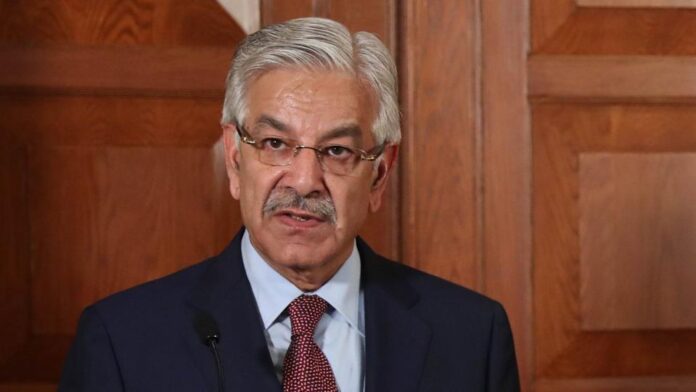Khawaja Asif Highlights Corruption eating away Pakistan like termites
Defence Minister Khawaja Asif, in an address to the Sialkot Chamber of Commerce and Industry on Thursday, acknowledged the deep-rooted corruption plaguing Pakistan. He described corruption as a “disease” that has become a significant obstacle to the country’s progress. He stressed that even a 50% reduction in corruption could eliminate Pakistan’s reliance on International Monetary Fund (IMF) assistance.
Khawaja Asif criticized the entrenched corruption in the system, citing customs collectors who openly accept bribes of up to Rs 400–500 million. He also lamented the erosion of ethical values in distinguishing between permissible and impermissible income, sharing an anecdote attributed to former Punjab Chief Minister Pervaiz Elahi, where a bureaucrat reportedly earned Rs 4 billion from receiving wedding gifts (‘Salami’). Calling corruption a termite eating away at Pakistan’s foundations, he urged for systemic reforms to address the issue.
The minister highlighted recent economic decisions, including a significant 9% reduction in Pakistan’s policy rate over the last few months. He emphasized the importance of internal stability and praised private sector partnerships in developing airports and airlines as examples of successful initiatives. Transparency International’s 2023 Corruption Perceptions Index gave Pakistan a score of 29, reflecting a high level of corruption. The minister’s remarks align with growing concerns over mismanagement and graft in public institutions.
An earlier inspection report commissioned by Sindh Chief Minister Syed Murad Ali Shah unveiled corruption and negligence in the Sindh Food Department. The report revealed that Rs 3.22 billion worth of wheat vanished following the devastating floods of 2022. Officials mixed 379,000 sacks of substandard wheat with dirt, leading to massive financial losses. The negligence was linked to wheat storage facilities in 14 districts of Sindh.
The defence minister’s candid acknowledgment of corruption’s devastating impact underscores the urgent need for accountability and reforms. Addressing systemic corruption could unlock economic potential, reduce reliance on external assistance, and restore public trust in governance.


